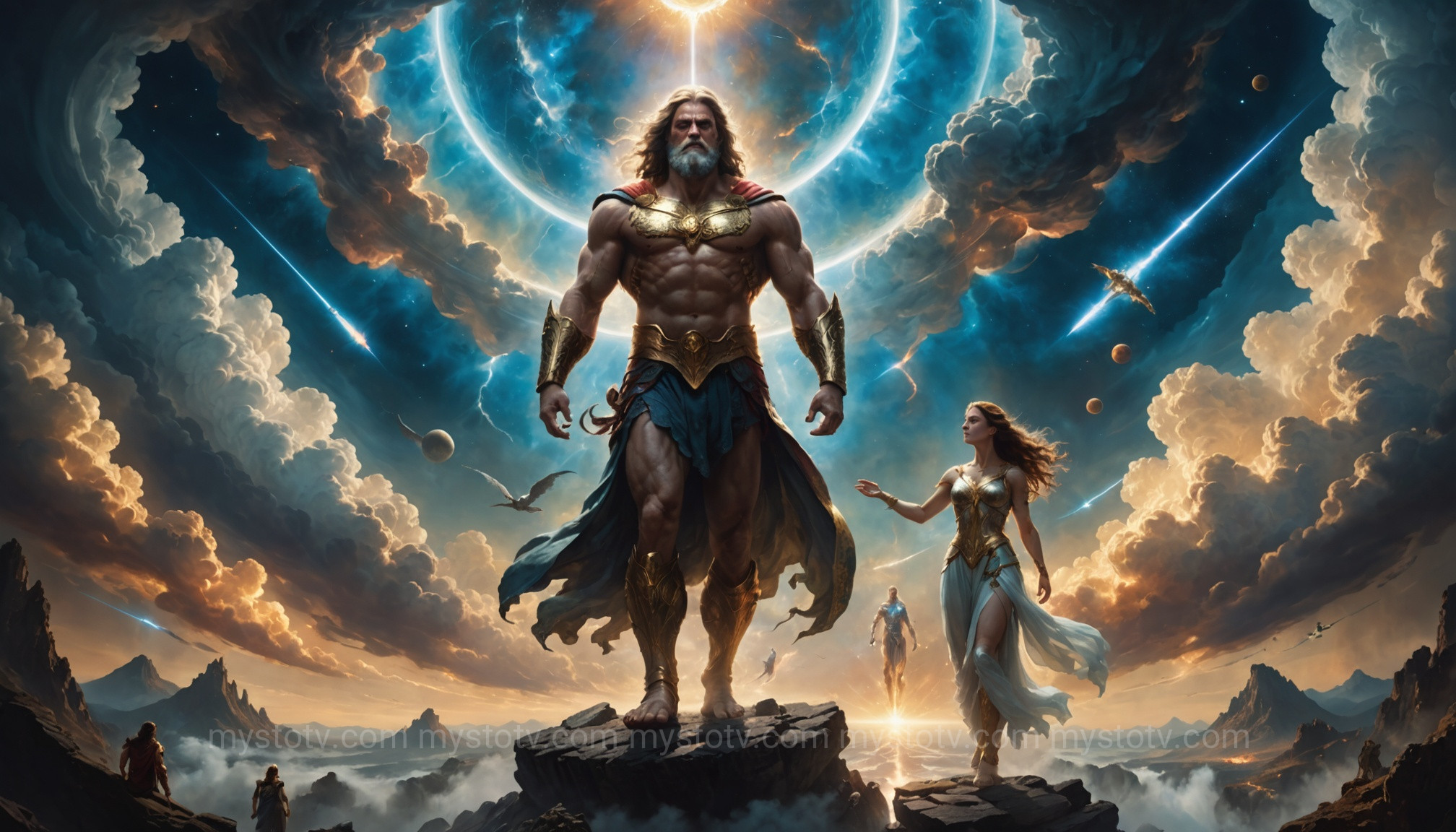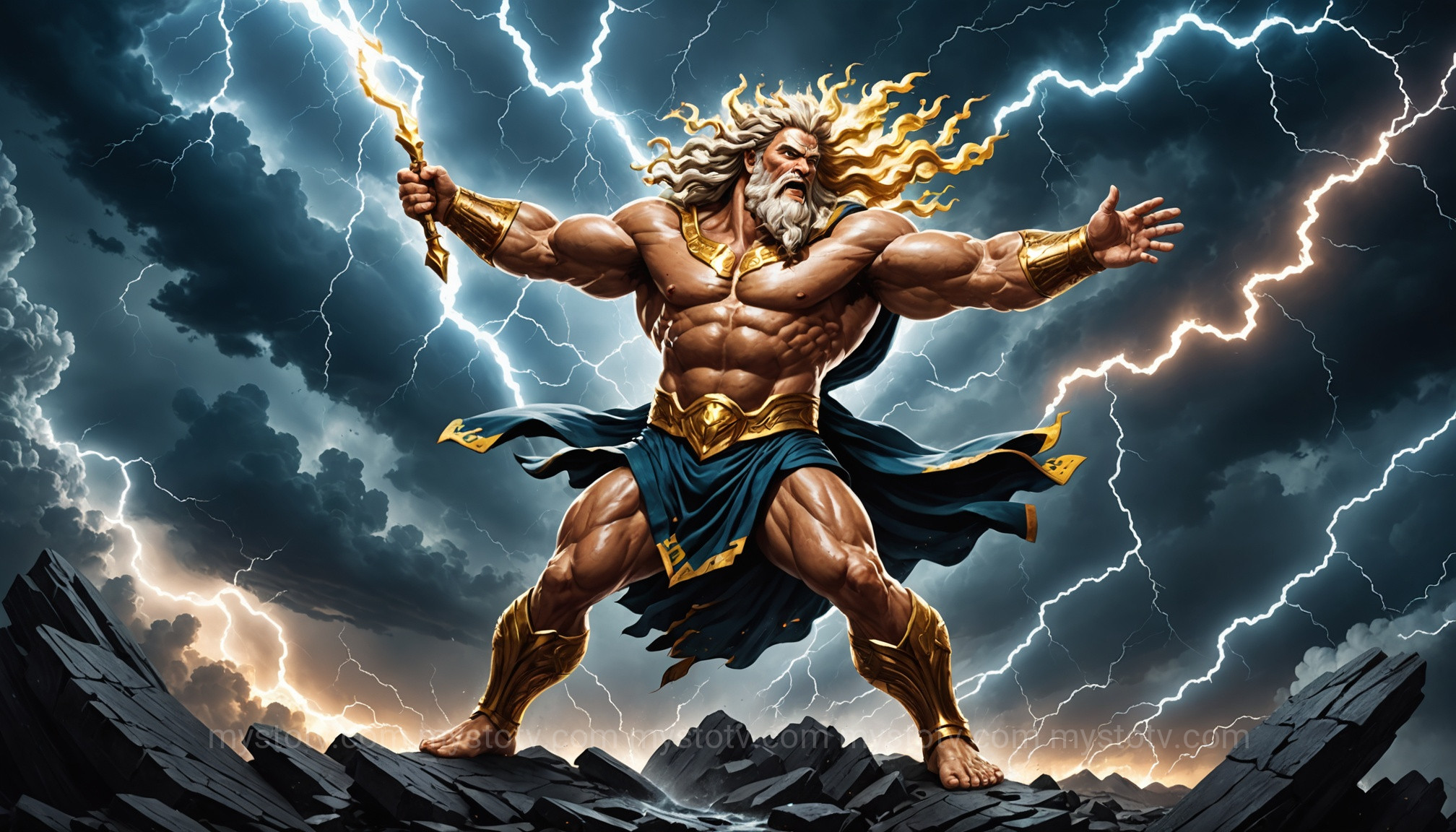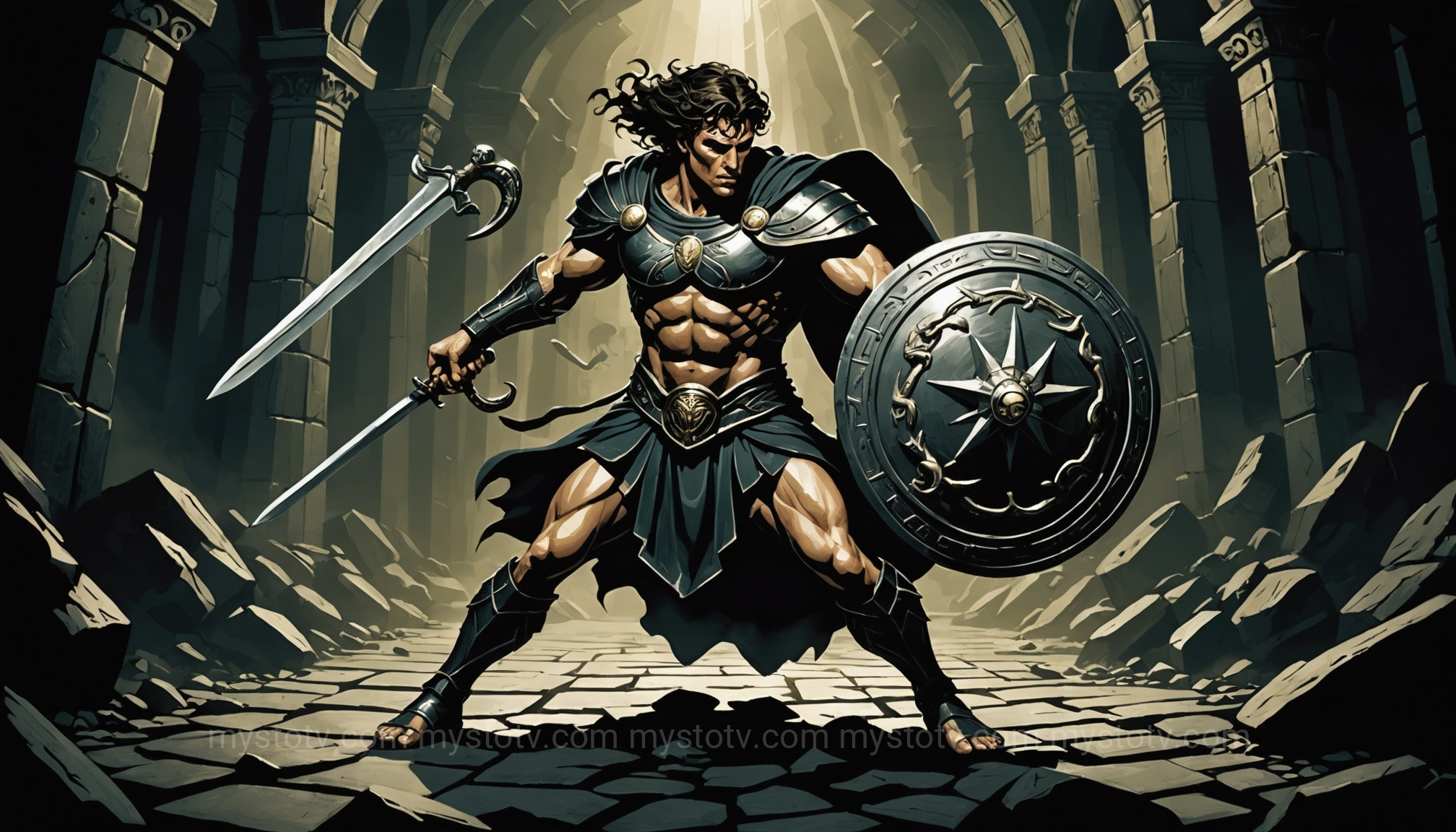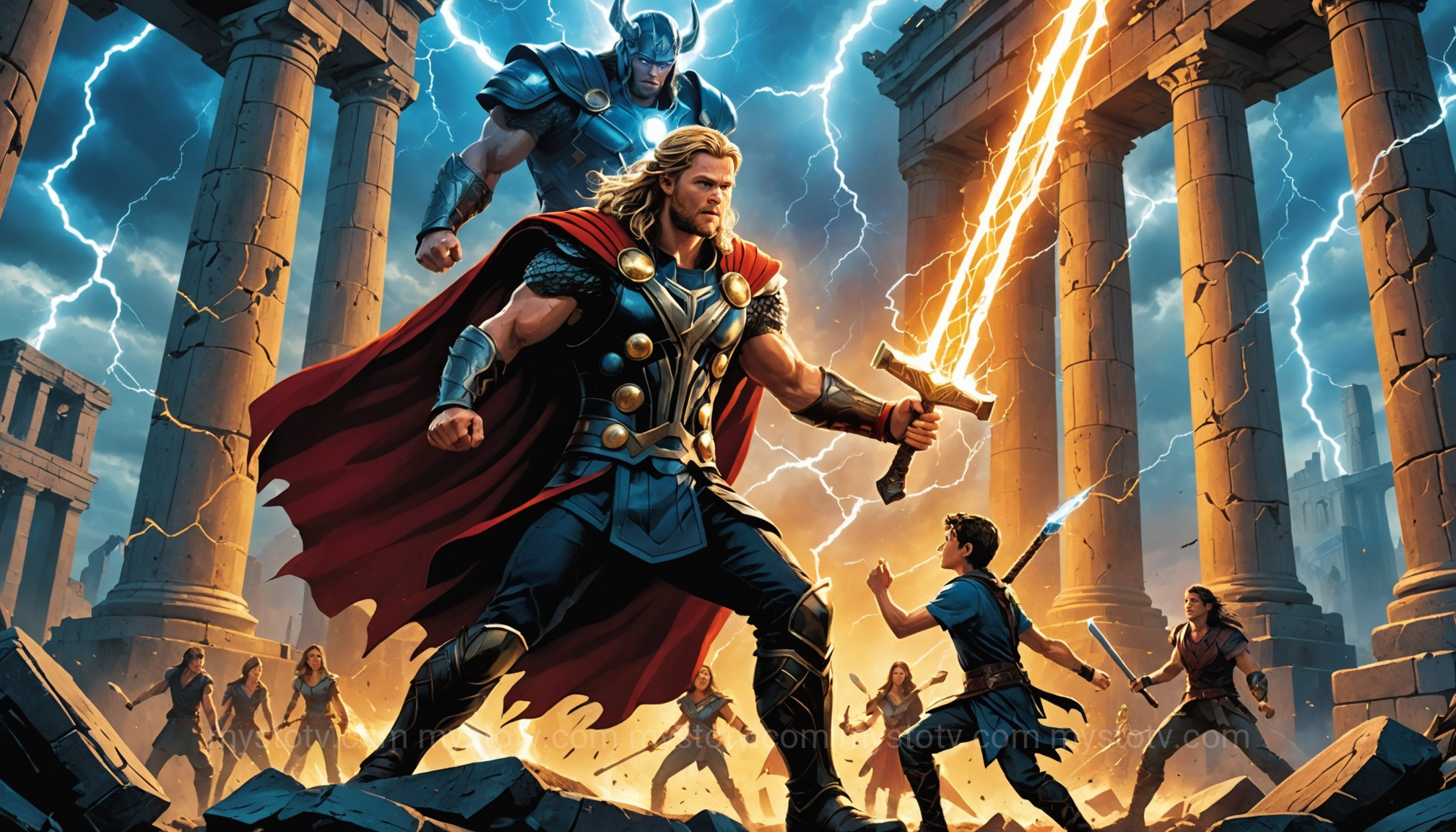Contents
- 1 Defining the Divine Hierarchy: Exploring God vs Demi-God Differences
- 2 The Crucial God vs Demi-God Differences in Origin and Parentage
- 3 Power, Immortality, and Limitations: Analyzing God vs Demi-God Differences
- 4 Cultural Roles and Influence: How God vs Demi-God Differences Shape Narratives
- 5 Modern Interpretations: The Enduring God vs Demi-God Differences in Pop Culture
- 6 Frequently Asked Questions About Gods and Demigods
- 7 Conclusion: Appreciating the Divine Divide
- 8 References
Defining the Divine Hierarchy: Exploring God vs Demi-God Differences
At the heart of mythology lies a structured hierarchy, a celestial pecking order that dictates power and purpose. The most fundamental distinction within this order is between a full-fledged god and a demigod. While both possess abilities far beyond mortal comprehension, their very nature, rights, and roles are worlds apart. Grasping these foundational god vs demi-god differences is the first step to deciphering their stories.
The Nature of a God: Absolute Power and Worship
A god, in most mythological systems, represents a pure, unadulterated form of divinity. They are beings born of other divine entities or primordial forces, with no mortal blood to dilute their essence. In Greek mythology, for example, the Olympians like Zeus, Hera, and Apollo are children of Titans, who themselves were divine. Their power is often absolute within their domain—Poseidon doesn’t just influence the sea; he is the sea's power personified. They are typically immortal, eternal, and not subject to the same physical laws as mortals. Crucially, gods are the objects of worship, the recipients of prayers, sacrifices, and temples. Their primary role is to govern the cosmos, maintain universal order, and interact with humanity from a position of supreme authority.
The Essence of a Demigod: The Bridge Between Worlds
A demigod, or "half-god," is precisely what the name implies: a hybrid entity. They are the offspring of a divine parent and a mortal parent. This mixed parentage is the single most important factor in the god vs demi-god differences. Characters like Hercules (son of Zeus and the mortal Alcmene) or the Mesopotamian hero Gilgamesh (two-thirds god, one-third mortal) embody this duality. They walk the earth as mortals do, yet possess a spark of the divine. This positions them as a unique bridge between the human and divine realms. They experience human emotions, limitations, and often mortality, yet wield strength, wisdom, or skills that set them far above their mortal peers. Their stories are not about governing the cosmos, but about navigating it.
The Crucial God vs Demi-God Differences in Origin and Parentage
 The lineage of a mythological figure is their destiny. While gods enjoy a closed circle of divine ancestry, demigods are defined by their connection to the mortal world. This foundational difference in birthright dictates everything from their powers to their ultimate fate and is a cornerstone of the god vs demi-god differences.
The lineage of a mythological figure is their destiny. While gods enjoy a closed circle of divine ancestry, demigods are defined by their connection to the mortal world. This foundational difference in birthright dictates everything from their powers to their ultimate fate and is a cornerstone of the god vs demi-god differences.
Divine Lineage: The Pure Blood of Gods
Gods are born into power. Their family tree is a "who's who" of cosmic forces and divine rulers. Consider the Norse pantheon: Odin is the son of Borr and the jötunn Bestla, and his son is the mighty Thor. There is no human element in this direct line of succession. This pure lineage grants them inherent authority and immortality. In many mythologies, the blood of the gods is not even blood as we know it; the Greeks called it ichor, a golden, ethereal substance. This biological distinction reinforces their separation from the mortal plane. A god's existence is a given; their power is an inheritance, not an achievement.
The Mortal Link: The Defining Trait of a Demigod
The story of a demigod always begins with a transgression of boundaries—a god descending to the mortal realm to consort with a human. This union, whether born of love, lust, or deception, results in a child who belongs to neither world completely. The Greek hero Perseus (son of Zeus and Danaë) and the Irish hero Cú Chulainn (son of the god Lugh and Deichtire) share this common origin story. Their mortal blood anchors them. It makes them vulnerable, susceptible to pain, grief, and, in most cases, death. This connection to humanity is not just a weakness; it's also their greatest strength. It provides the motivation for their quests and makes their triumphs relatable and awe-inspiring to the humans who tell their stories. This hybrid origin is perhaps the most significant of the god vs demi-god differences.
Power, Immortality, and Limitations: Analyzing God vs Demi-God Differences
Beyond origin, the most dramatic god vs demi-god differences manifest in what these beings can and cannot do. A god's power is often conceptual and limitless within their sphere, while a demigod's power is typically physical and bound by certain rules.
The Scope of Divine Power: Cosmic vs. Superhuman
 The power of a god is qualitative. It's the ability to command natural forces, to warp reality, to exist in multiple places at once, or to govern abstract concepts like love (Aphrodite) or war (Ares). Their power is an extension of their being. A demigod's power, however, is almost always quantitative—an enhancement of human attributes. They are super-strong, super-fast, or preternaturally skilled in combat. Hercules can lift mountains, but he cannot command the sky to rain. Achilles was nearly invincible in battle, but he couldn't stop a plague by divine will. This distinction is crucial: gods are forces of nature; demigods are paragons of potential.
The power of a god is qualitative. It's the ability to command natural forces, to warp reality, to exist in multiple places at once, or to govern abstract concepts like love (Aphrodite) or war (Ares). Their power is an extension of their being. A demigod's power, however, is almost always quantitative—an enhancement of human attributes. They are super-strong, super-fast, or preternaturally skilled in combat. Hercules can lift mountains, but he cannot command the sky to rain. Achilles was nearly invincible in battle, but he couldn't stop a plague by divine will. This distinction is crucial: gods are forces of nature; demigods are paragons of potential.
Immortality vs. Mortality: The Great Divide
The most poignant of all god vs demi-god differences is the question of an eternal life. Gods are, with very few exceptions across mythologies, immortal. They cannot die from age or disease and often can only be harmed by very specific magical weapons or by other gods. Their existence is a constant.
Demigods, on the other hand, are almost always mortal. Their mortal blood carries with it the seed of death. The epic of Gilgamesh is a profound meditation on this very theme; after the death of his friend Enkidu, the mighty demigod becomes terrified of his own mortality and embarks on a futile quest for eternal life. The death of a demigod, like Achilles's fall from a heel wound or Cú Chulainn's demise in battle, is what makes their story a tragedy and their heroism so profound. They achieve a form of immortality not by living forever, but through the eternal glory of their deeds—their kleos.
Cultural Roles and Influence: How God vs Demi-God Differences Shape Narratives
How a society views these figures determines their role within myths and legends. Gods are revered as distant, powerful forces to be appeased, while demigods are often celebrated as relatable champions who act on humanity's behalf. These differing cultural roles are a direct result of the inherent god vs demi-god differences.
Gods as Objects of Worship and Cosmic Order
In the cultural context, gods are the "why." They explain natural phenomena—thunder is the wrath of a god, a good harvest is a goddess's blessing. This understanding led to the creation of organized religion, with priests, temples, and rituals all designed to curry favor with these powerful, often fickle, beings. They are the patrons of cities (like Athena for Athens) and the arbiters of cosmic justice. Their stories, or myths, often serve as cautionary tales or explanations for traditions and the structure of the world.
Demigods as Cultural Heroes and Agents of Change
 If gods are the "why," demigods are the "how." They are the protagonists of epic adventures. While gods might set events in motion, it is the demigod who must carry out the quest. They slay monsters (Theseus and the Minotaur), found civilizations (Aeneas, son of Venus, who founded the Roman race), and challenge the status quo. They are cultural heroes whose stories instill values like courage, perseverance, and ingenuity. Because they can be harmed and can die, their struggles and victories carry a weight that stories of all-powerful gods often lack. They are agents of change within the mortal world, directly interacting with humanity and shaping its destiny through their actions. Their hybrid nature makes them the perfect bridge between the divine and the human.
If gods are the "why," demigods are the "how." They are the protagonists of epic adventures. While gods might set events in motion, it is the demigod who must carry out the quest. They slay monsters (Theseus and the Minotaur), found civilizations (Aeneas, son of Venus, who founded the Roman race), and challenge the status quo. They are cultural heroes whose stories instill values like courage, perseverance, and ingenuity. Because they can be harmed and can die, their struggles and victories carry a weight that stories of all-powerful gods often lack. They are agents of change within the mortal world, directly interacting with humanity and shaping its destiny through their actions. Their hybrid nature makes them the perfect bridge between the divine and the human.
Modern Interpretations: The Enduring God vs Demi-God Differences in Pop Culture
 The archetypes of gods and demigods are as potent today as they were thousands of years ago, thriving in books, films, and video games. Modern storytellers like Rick Riordan in the Percy Jackson series have built entire worlds around the concept of modern-day demigods navigating life with one foot in the mythological realm. Similarly, Marvel Comics transformed the Norse god Thor into a superhero who, despite his immense power, often grapples with very human-like conflicts and limitations, sometimes blurring the lines.
The archetypes of gods and demigods are as potent today as they were thousands of years ago, thriving in books, films, and video games. Modern storytellers like Rick Riordan in the Percy Jackson series have built entire worlds around the concept of modern-day demigods navigating life with one foot in the mythological realm. Similarly, Marvel Comics transformed the Norse god Thor into a superhero who, despite his immense power, often grapples with very human-like conflicts and limitations, sometimes blurring the lines.
Interestingly, these modern tales often explore the god vs demi-god differences by focusing on the demigod's choice: do they embrace their humanity or strive for the cold, distant power of their divine parent? The video game series God of War is a masterclass in this, following the demigod Kratos as he literally battles his divine heritage. These stories resonate because they use the mythological framework to explore timeless themes of identity, belonging, and the struggle between destiny and free will.
Frequently Asked Questions About Gods and Demigods
Even with a clear understanding of the core differences, some specific questions often arise. Here are answers to a few common queries.
Can a demigod become a full god?
Yes, but it is exceptionally rare and usually requires an extraordinary feat or the direct intervention of the gods. This process is called apotheosis. The most famous example is Hercules (or Heracles in Greek), who, after enduring his Twelve Labors and a painful death, was granted a place on Mount Olympus and true immortality. This ascension is the ultimate reward, representing the complete transcendence of a demigod's mortal limitations.
Are all mythological heroes demigods?
No, and this is a key distinction. While many famous heroes were demigods (like Achilles), many others were fully mortal. Heroes like Odysseus, Jason, and Hector were renowned for their cunning, bravery, and strength, but they had no divine parentage. Their greatness came entirely from their human potential, making their achievements, in some ways, even more remarkable. A hero is defined by their deeds, while a demigod is defined by their birth.
Do all mythologies feature demigods?
While the concept is most prominent in Greco-Roman mythology, many other cultures have similar figures. Hindu mythology features numerous avatars, who are earthly incarnations of gods like Vishnu (such as Rama and Krishna), sharing traits with demigods. Polynesian myths tell of Maui, a demigod trickster who fished islands from the sea. The presence of these "bridge" figures seems to be a near-universal element of storytelling, fulfilling the human need for champions who are more than human but still relatable.
Conclusion: Appreciating the Divine Divide
The line between divine and semi-divine is more than a simple matter of parentage; it's a fundamental divide that shapes the entire landscape of mythology. The god vs demi-god differences in origin, power, mortality, and cultural role create a dynamic and complex universe of stories. Gods provide the cosmic framework, the power and the rules that govern existence. Demigods provide the action, the drama, and the heart. They are the figures who test the boundaries of those rules, proving that even a mortal spark can achieve immortal renown. By understanding this divine hierarchy, we move beyond simply enjoying a myth to truly appreciating the cultural values, fears, and aspirations encoded within these timeless tales.
References
- Graves, Robert. The Greek Myths. Penguin Books, 2011.
- Hamilton, Edith. Mythology: Timeless Tales of Gods and Heroes. Grand Central Publishing, 1999.
- World History Encyclopedia. "Demigod." https://www.worldhistory.org/demigod/
- Sandars, N. K. (Trans.). The Epic of Gilgamesh. Penguin Classics, 1972.